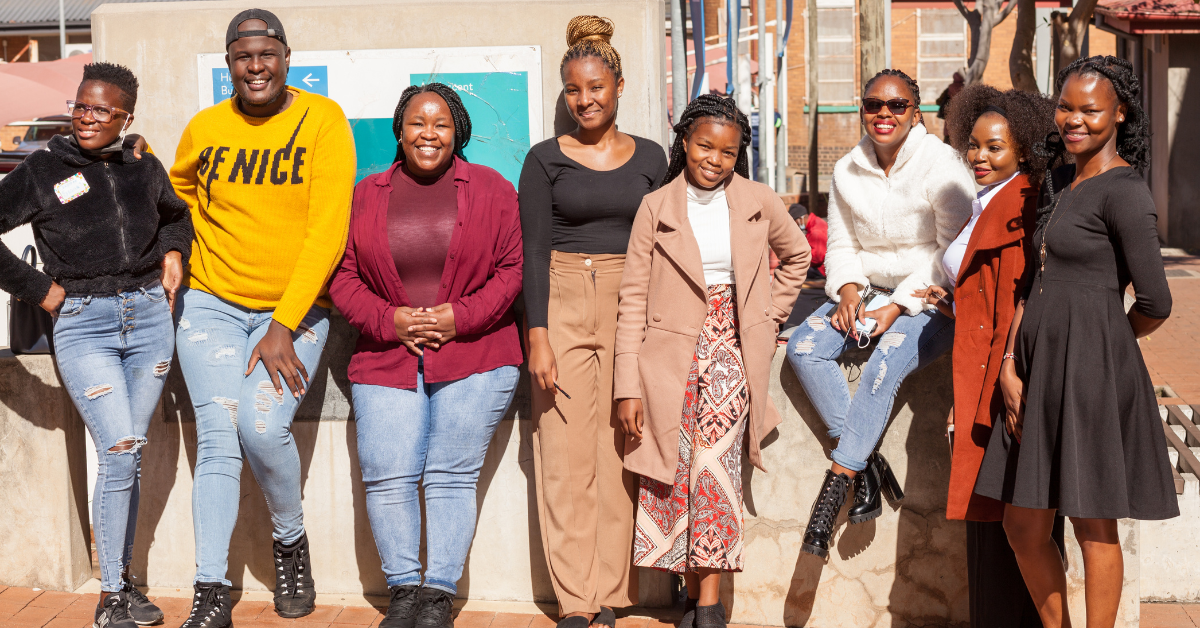Nts’ebo Lerotholi, Jhpiego
Rubuna Nagai, FHI 360
Oral pre-exposure prophylaxis (PrEP) has been available for nearly seven years in many countries in eastern and southern Africa, but young people—particularly adolescent girls and young women—continue to have disproportionately high rates of HIV. New biomedical prevention methods offer hope for lowering HIV acquisition among young people.
The Catalyzing Access to New Prevention Products to Stop HIV (CATALYST) study will use implementation science in five countries (Kenya, Lesotho, South Africa, Uganda, and Zimbabwe) to understand how adolescent girls and young women use PrEP when they have a choice among products. It is designed to fast-track access to available biomedical prevention methods among users and generate evidence to guide delivery of those methods.
CATALYST is a great innovation for adolescent girls and young women. Just like a family planning program, CATALYST is offering young women choice—in this case, among oral PrEP, the PrEP ring, and injectable cabotegravir, known as CAB PrEP. It will enable young women to make the personal decision to use PrEP and choose a method that suits their lifestyle and preferences, and this is power.
“I’m really looking forward to seeing the outcomes of the study because I believe it will be a true reflection of the needs and perspectives of the end-users.” – Adaobi Olisa, MOSAIC NextGen Squad, Nigeria
But what really sets CATALYST apart is the study’s emphasis on meaningful involvement of young people at every stage of the research to understand end-user perspectives and help tailor the study to meet their needs. This makes us hopeful because the inclusion of young people in the CATALYST journey has not been tokenistic; rather our contributions have been reflected in the whole process so far. In this post, we describe three ways youth have been engaged in CATALYST.

NextGen Squad: As members of this group of youth advisors to the MOSAIC project, we are supporting CATALYST study activities at both the regional and global levels. We were involved right from the planning stage of CATALYST, which started with consultations with young people. We have assisted in the development and review of materials that will be used in the study, including the protocol, fact sheets, counseling tools, and translations of informed consent forms. As co-designers of the questions researchers will ask study participants, we used sensitive language to frame the questions in a supportive way that respects young women’s perspectives so that they will feel comfortable sharing their experiences with the products. CATALYST has also given us the opportunity to champion the use of new PrEP options through advocacy, blog writing, and social media posts.
Youth Advisory Boards: In addition to involving the NextGen Squad, who work across the MOSAIC project, CATALYST is engaging other young people in the study. In Lesotho, for example, the study has established a youth advisory board with 14 members from civil society organizations such as DOLL (representing people with disabilities), People of Matrix (LGBTIQA+), Care for Basotho (female sex workers), and various groups working with adolescents and young women. Other CATALYST countries are forming similar youth and community advisory boards to ensure full engagement of young people in the study.
HIV Prevention Ambassadors are another group of young people who will play an important role in the CATALYST study. These Ambassadors are key in supporting peers to make decisions about accessing PrEP and continuing to use it. They also raise awareness about HIV prevention and help build a community support system for PrEP users. In Uganda, we trained 36 PrEP Ambassadors who are supporting awareness efforts, referrals of prospective clients, and follow up with participants in the CATALYST study. We will continue to train, mentor, and support Ambassadors during CATALYST study implementation.
Numerous initiatives have been launched to prioritize young people when it comes to HIV prevention, but we have not made enough progress. We believe that engaging youth in meaningful ways and providing real choice in HIV prevention will make life easier and empower young people to prevent HIV. We are excited about participating in the CATALYST study and about its potential to transform HIV prevention for young people. As members of the NextGen Squad, we will continue to keep the project accountable for its goals, actions, and learning initiatives to ensure CATALYST is responsive to the needs, preferences, and lived experience of young people.
Featured Image: Several NextGen Squad and support team members gather outside of the Wits RHI office in Johannesburg, South Africa (David Penney/MOSAIC).


